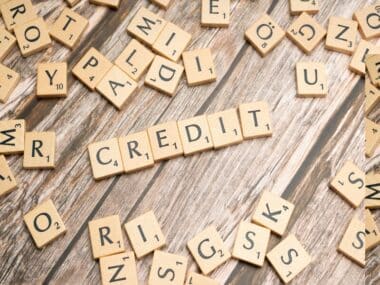A credit score is a three-digit number ranging from 300 to 850 that measures a person’s history of paying bills and ability to handle financial responsibility. High credit scores tell lenders that the borrower has high creditworthiness, while low credit scores show lenders that the potential borrower has a shaky past of paying back debts.
FICO bases your credit score on your credit history. It includes various factors, such as:
- Your payment history;
- The number of credit accounts you have open;
- Your available credit;
- The length of your accounts.
These factors combine to create a unique numerical credit score that summarizes your personal credit history. Experian ranks credit scores to give borrowers an idea of where their credit score stands.
- 300 to 579: Very Poor.
- 580 to 669: Fair.
- 670 to 739: Good.
- 740 to 799: Very Good.
- 800 to 850: Excellent.
It’s important to stay aware of your credit score since a variety of factors can affect it. You can check your credit score by requesting a credit report from AnnualCreditReport.com.
Table of Contents
Why Your Credit Score Is 668
A credit score of 668 is a “Fair” credit score but has the potential to rise quickly into the “Good” category. This section discusses possible causes for a sudden decline or reasons why your credit score struggles to rise above 668.
Late Payments
Your credit card payment history has the greatest impact on your credit score and influences up to 35% of your total score. That being said, missing a single payment won’t always affect it, especially if you’ve previously had an excellent payment history.
However, any delinquent accounts (accounts with unpaid debts) that remain unpaid for more than 30 days could severely damage your credit score by dropping it up to 125 points.
To remedy a low credit score with multiple delinquent accounts, pay off any late payments as soon as possible. Fixing your delinquent accounts won’t immediately lift your credit score; it requires constant effort to keep your accounts paid. After several months of never missing a payment, your bad credit karma will repair itself.
Maxed Credit Usage
Each of your accounts has a total credit limit that you can “max out” if you push too close to the limit. For example, if your account has a credit limit of $1,000 and you spend $500 on that account, you’re utilizing 50% of the total available credit.
Experts recommend that you stay well below 30% of your total credit limit. It’s important to note that car loans and house mortgages do not factor into your credit usage since they are not “revolving credit.”
Having maxed credit can affect up to 30% of your credit score. Luckily, it’s fairly simple to remedy a low credit score with maxed credit. In theory, all you will have to do is pay off anything that pushes your utilization over 30%. Over the next few months, you should see your credit score recover.
Hard Inquiries
Applying for credit cards can temporarily affect your credit score. The credit card company will request a credit score and credit report, triggering a “hard inquiry.” Multiple hard inquiries can drop your credit score by 10% and bring it from a Good range to a Fair range.
The effects of a hard inquiry are temporary and require no action on your part to fix. However, if you didn’t apply for a credit card and you’re still seeing a hard inquiry, you can dispute the negative claim and get the hard inquiry removed from your credit history.
What Can You Do With a 668 Credit Score?
Those with higher credit scores will have more opportunities available. If you have a 668 credit score, you still have many of the same options as someone with a 750 score; however, there may be some caveats.
It’s the lenders’ opinions that matter — lenders may be willing to give reasonable interest rates despite a 668 credit score. In most situations, lenders will increase borrowers’ interest rates to mitigate the lender’s risk if the borrower has a low credit score. That being said, here are five things you can do with a credit score of 668:
- Apply for credit cards with no annual fee: With a 668, you should be able to apply for credit cards that don’t require the annual fee.
- Apply for store credit cards: Store cards often have an annual percentage rate (APR) of 21%, which could increase if you have a lower credit score.
- Apply for a 0% financing credit card: These cards allow you to pay a 0% interest rate for the first year of having the card. After the first year, the interest rate may revert to the card’s standard rate.
- Apply for a no-foreign-fee credit card: If you often travel abroad, having a credit card that doesn’t charge foreign fees is necessary. Luckily, you should be able to apply for this card with a credit score of 668.
- Take out a personal loan or mortgage: There are plenty of mortgage lenders and loan programs for borrowers with poor credit as long as you’ll agree on a loan with a higher interest rate.
How to Repair a 668 Credit Score
A credit score of 668 sits on the border between Fair and Good, making it extremely possible to bridge the gap within a few months. This section includes three invaluable resources you can use to increase your credit score.
Credit Repair Companies
Credit repair companies focus on finding resources specific to your case that will repair your credit score. Hiring a credit repair company can be one of the best things you do for your credit score if you’re willing to pay for their services.
Always research the best credit repair companies before agreeing to work with one to make sure you’re getting the most out of the opportunity.
Dispute Negative Claims
Negative claims limit your credit score. As negative claims (such as missed payments, civil judgments, and bankruptcy) pile up on your account, your credit score suffers.
You can dispute them on your credit account, especially if one of the claims is an error. If the credit company doesn’t have the documents to back up the negative claim, they have to strike it from your account, boosting your credit score.
Consider a Credit-Building Loan
A credit-building loan is a loan specifically meant to help you build better credit and establish a history of paying off your debts. After you’re approved for a credit-building loan, the loan is held in a bank account that you’re unable to access, thus limiting the lender’s risk. Once you fully pay off the loan, you can access the money.
Image Source: https://depositphotos.com/





